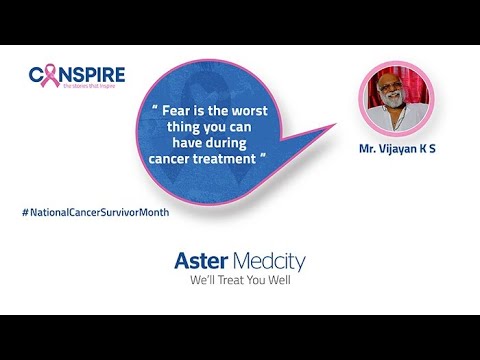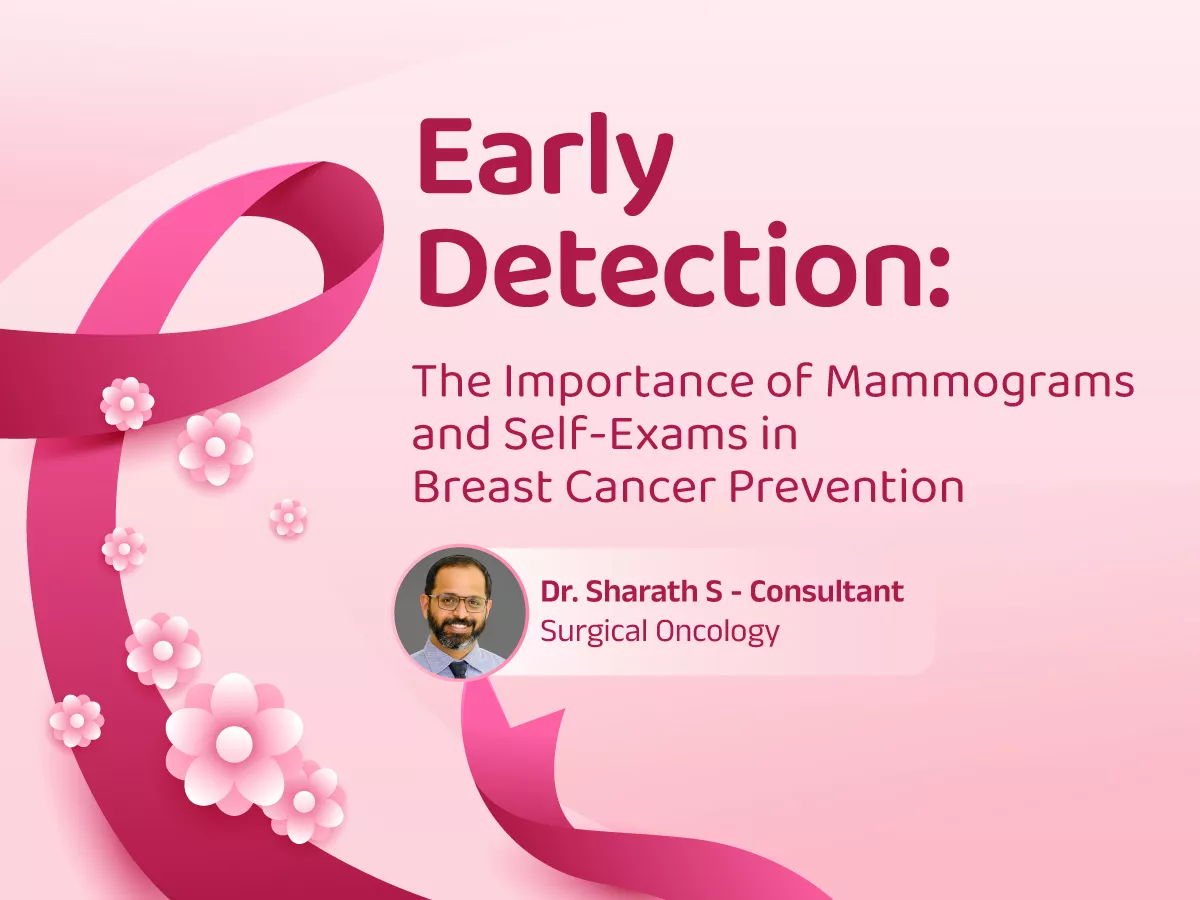The department of Surgical Oncology at the Centre of Excellence in Oncology offers a wide spectrum of surgeries for cancers in the breast, head and neck, thoracic region, gastrointestinal malignancies, gynaecological malignancies, Pelvic malignancies, bone and soft tissue sarcomas. With focus in cancer surgery shifting from conventional radical resection surgery to conservative surgery, the department, with support from Medical and Radiation Oncology, performs highly advanced organ preservation surgery along with reconstructive surgeries like complete breast reconstruction using flaps and implants, limb preserving surgeries for bone and soft tissue tumours, limb salvage surgery for bone tumours with modular prosthesis, free fibula flaps and extra-corporeal radiation intra-operatively. It is also first facility in Kerala to offer Minimal Access Robotic Surgery for colo-rectal malignancies, uterine cancers and cervical cancers.
Our Doctors
We have some of the best specialists from around the world, they bring years of experience and offer evidence-based treatment to ensure the best care for you.
Treatments & Procedures
We provide comprehensive treatment for all types diseases under one roof. Our highly experienced doctors supported by especially trained clinical staff, ensure the best care for you.
Advanced Technology & Facilities
Well equipped with the latest medical equipment, modern technology & infrastructure, Aster Hospital is one of the best hospitals in India.
ORI Fusion Digital Integrated Operation Theatres With 22 Operating Rooms that are on par with some of the largest in the world, Aster Medcity, for the first time South India, introduces ORI Fusion Digital Integrated Operation Theatres using Karlstorz OR1 Fusion - Asia Pacific’s first complete digital integration system.
The integration enables real-time sharing of images, videos and medical reports, which not only facilitates virtual participation from any location in the world but also helps the rest of the surgical team to monitor the patient closely during the operative procedure, much to the benefit and safety of the patient undergoing the surgery.
Aster Medcity is also the first surgical facility in the state to offer Robotic Surgery using a high-precision da Vinci Surgery Robot.
Advanced Features
- PACS, HIS, and video recording integrated for single monitor control by Surgeons
- Each Operating Room has 3 cameras and 6 monitors for Doctors to monitor patient parameters and the surgical procedures
- Operative procedures can be transmitted live to various locations within and outside the Hospital
- Facilities for interactive sessions during operation through live transmission of the procedure
- Doctors can join the Surgical team and monitor the patient from any location outside the hospital
- Da Vinci Surgical Robot for performing minimally invasive Robotic Surgery
- State-of-the-art engineering techniques to maintain positive pressure within operating rooms along with heap filters to reduce infections
- Individual air handling unit for each Operating Room
- Equipped with Isocentric C Arm
- Advanced facilities to monitor including depth of Anaesthesia, Neuromuscular Monitoring, Transcranial Doppler and 3D Echocardiogram
- High-end Anaesthesia workstation with precision delivery of Anaesthetic gases
- Autopilot facility Anaesthesia machines
- Capability to export information to all ICUs within the hospital
- Induction bay with facilities for parents to be with children during induction of Anaesthesia
- As all Operating Rooms here are approximate of the same size, they can accommodate a variety of equipment- surgical, as well as those for ensuring the safety and protection of the patient
- Stringent Infection Control measures followed under the surveillance of experienced Doctors
Anesthesia Team
- Perioperative anesthetic care
- Anesthesia for solid organ transplant
- Invasive monitoring of deep hypothermic circulatory arrest and associated techniques
- Anesthetic support for SSEP and MEP
- Anesthesia for infants, neonates, and children
- Anesthesia for craniofacial reconstructive and cosmetic surgery
- Labor analgesia and obstetric Anaesthesia
- Regional anesthetic techniques with ultrasound and PNS
- Transesophageal echocardiography
- Fiber optic bronchoscopy
- Difficult intubation maneuvers
- Intar aortic balloon support
- Inotropes vasodilators and vasopressors
- ECMO and LVAD assistance
- Neuro monitoring: BIS, NIRS, neuromuscular monitoring, TCD
- Special anesthetic techniques for awake craniotomies
- Blood conservative measures
Seamless Team Work
The ORI Fusion Digital Integration system in the Operating Rooms helps create a workflow that’s seamless by enabling virtual participation of Doctors in the procedure, from whichever part of the world they are in at that point in time. As all medical reports and image modalities including the operation procedure can be transmitted live to any location inside or outside the hospital, Doctors can become a part of the Surgery Team on a real-time basis, wherein they can interact with Surgeons in the OR, closely monitor the procedure as well as patient parameters and contribute their expert suggestions.
- Karl Storz OR1 Fusion Technology
- Single monitor control enabled through integration of PAC, HIS & Video Recording
- Live to share all image modalities & medical reports
- 3 cameras and 6 monitors in every OR.
Waiting Lounge
Aster Medcity understands that the time of surgery is stressful for the family of the Patient as well, which is why the bystander’s waiting lounge has been designed in such a way that it provides a calming, comforting ambiance
Scenic view of the backwaters from the visitor's lounge, Recliner Chairs, Cafeteria
Guest Relation Team who updates the bystanders on patient’s progress at regular intervals and ensures a warm, hospitable atmosphere.
Patient Stories
Our patients are our best advocates, hear the inspiring stories of their treatment journey
Blogs
The source of trustworthy health and medical information. Through this section, we provide research-based health information, and all that is happening in Aster Hospital.


































